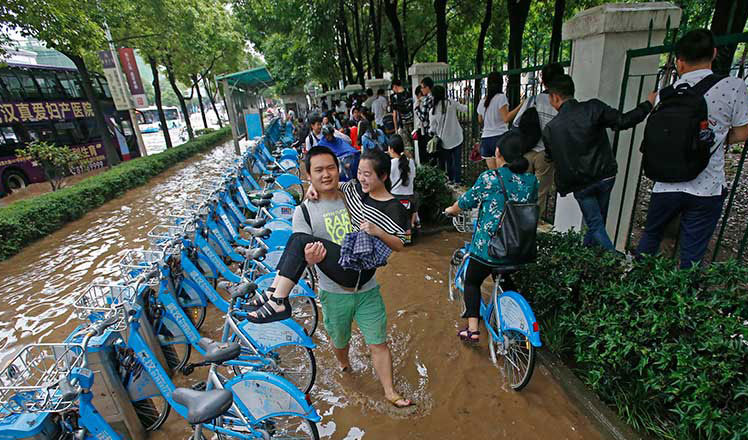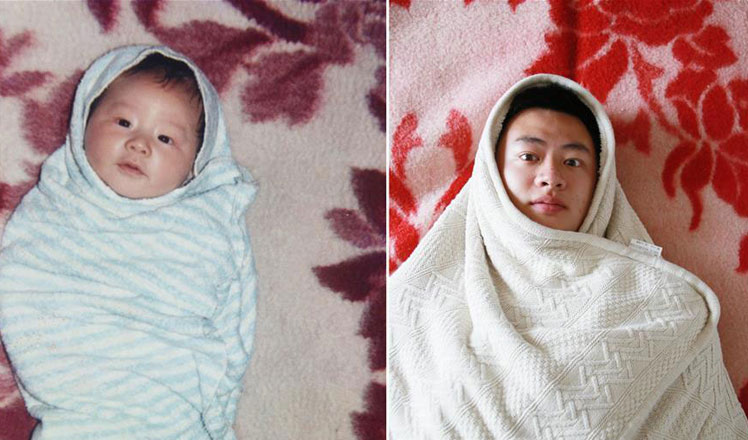Satellite industry set to hit new heights
Updated: 2016-05-30 21:09
By Zhao Lei(chinadaily.com.cn)
|
||||||||
China is likely to be building and supplying at least 10 percent of the world's satellites by 2020, according to a leading space researcher.
"A forecast by a foreign consultancy points out that around 1,000 satellites will be launched before 2020 to meet the demands of the market and we believe Chinese-developed satellites will account for more than 10 percent of that market," said Yuan Minhui, the director of the Beijing Institute of Space Science and Technology Information. Yuan, who spoke to China Daily on Monday on the sidelines of the Third China International Satellite Service Business Matching event, which is aimed at promoting Chinese satellites in the international market, said the role will only continue to grow.
"Remote sensing, communications and positioning, and navigation satellites are our major offers in the global market and they will continue to expand their shares, despite the fact that competition has become more fierce due to new players joining in," he said.
Yuan's institute is part of the China Academy of Space Technology, the biggest satellite and spacecraft developer in the nation, and is responsible for researching space industry information.
In talking about cooperation potential between China and the United States in the space industry, Yuan suggested that, despite the US now having a ban in place on contact between Chinese and US space workers, the nations should seriously consider cooperating on manned space exploration programs.
"This is because such programs cost a lot and carry high risks," he said. "Collaboration would help reduce the risks and improve engineering efficiency."
A satellite industry researcher suggested that the government might consider setting clear responsibilities for space-related authorities because that would facilitate the industry expanding overseas.
"Currently, we can't even find out who is in charge of some fields in the satellite sector," said the researcher, who declined to be named, citing his employer's media policy. "The vague organizational structure and lack of definitions and responsibilities causes confusion for our potential foreign clients."
He also urged China's space authorities to draw up guidelines detailing the accepted distribution and use of satellite data, saying the absence of such guidelines has created tremendous obstacles for the export of such information.
- Swiss declare Alps tamed as Gotthard rail tunnel opens
- China urges Japan to properly settle Chinese forced laborers issue
- Searching for remains of Dead Sea Scrolls
- China-US relations shouldn't be hijacked by S. China Sea issue
- To cool you off: The fountain in Washington Square Park
- Americans warned about terror risk this summer

 Performers wanted for Shanghai Disney park
Performers wanted for Shanghai Disney park
 New law protects ancient villages in Southwest China's Lhasa
New law protects ancient villages in Southwest China's Lhasa
 Kids with HIV in Shanxi's Red Ribbon School
Kids with HIV in Shanxi's Red Ribbon School
 Heavy rain turns Wuhan into 'seaside' city
Heavy rain turns Wuhan into 'seaside' city
 Photos: Little royals on the Children's Day
Photos: Little royals on the Children's Day
 Pure love: Chinese 'little prince'and his fox
Pure love: Chinese 'little prince'and his fox
 Then and now: Recreating that child-like smile
Then and now: Recreating that child-like smile
 Young teacher's heartfelt love for the students
Young teacher's heartfelt love for the students
Most Viewed
Editor's Picks

|

|

|

|

|

|
Today's Top News
Chinese State Councilor Yang Jiechi to meet Kerry
Chinese stocks surge on back of MSCI rumors
Liang avoids jail in shooting death
China's finance minister addresses ratings downgrade
Duke alumni visit Chinese Embassy
Marriott unlikely to top Anbang offer for Starwood: Observers
Chinese biopharma debuts on Nasdaq
What ends Jeb Bush's White House hopes
US Weekly

|

|





